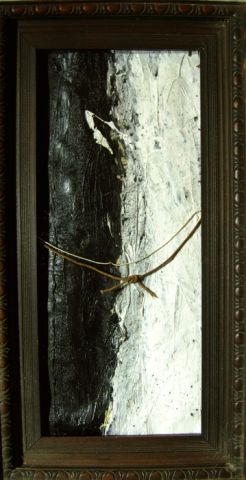I have always been kind of awed reading about artists who read philosophy. It seemed so very intellectual, so ‘New York’, so removed from my own experiences. Now I’m an artist reading philosophy and it’s not so impressive. It strikes me as a lot of circular thinking trying to state the obvious, kind of like art.
That is the interesting thing about The Death and Return of the Author by Seán Burke; he is straightening out the circular logic of Barthes, Foucault and Derrida. Burke is looking logically at the theory of ‘death of the author’ and basically showing it to be ‘philosophically untenable’. The question of identity, I believe, has never been more important than it is now and basing ideology on theories which are perhaps not all they should be in terms of ‘truth and logic’ can be misguided, to say the least.
My own work has passed through several theoretical phases in an attempt to find meaning and understanding of what I produce. A question of identity always seems to be at the bottom of it all. It’s not necessarily a search for my own identity; I feel it is more general than that. Reading art history makes me feel more secure in following that question of identity because it seems that most artists are questioning identity in terms of a society that shapes and impacts living, indeed our very selves.
Medium and the debate of structuralism vs. post-structuralism is a big part of this identity question I think. So much of art is non-structured in the sense that it is conceptual in nature and doesn’t adhere to traditional media. But an interesting thing I see from reading art history is so many of the artists working in a post-structuralistic way find their way back to painting or other traditional, structured media.
I find this compelling and it makes me consider seriously not only theory/concept but also media for my own work. The debate over ‘the object’ and commercialism is a valid one, but perhaps one that is moot, because let’s face it, all new ideologies will be subsumed by the market eventually.
I’m looking for what is true to the work rather than what is fashionable at the moment.
